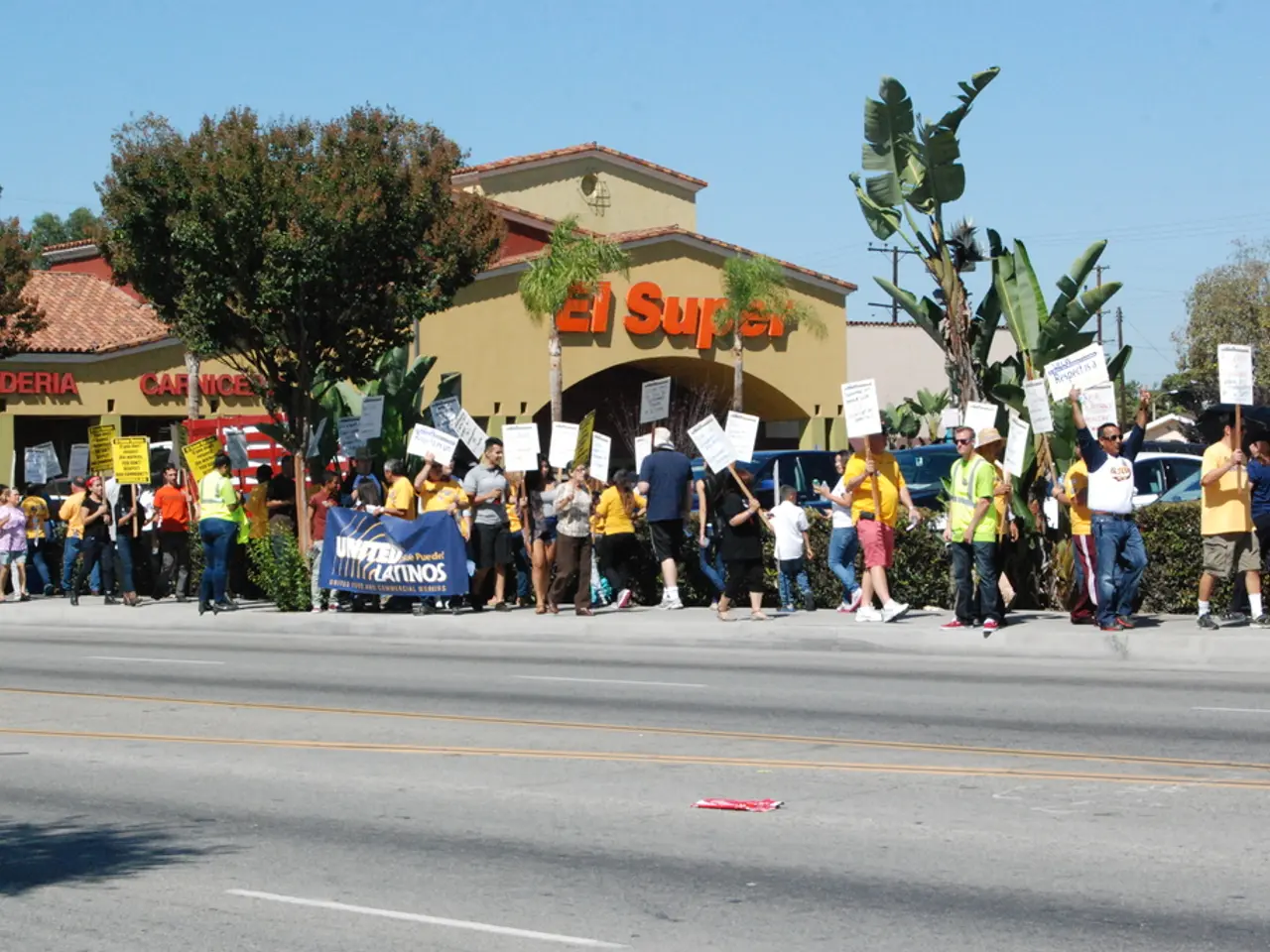Formed by Elon Musk: The New 'America Party' Revealed
Elon Musk, the world's richest man, announced the formation of a new political party called the "America Party" in July 2025[1]. The move comes after a public split with former President Donald Trump over a controversial legislative bill, dubbed the "Big, Beautiful Bill," which Musk criticized for adding trillions to the national debt[1][2].
The America Party was established with the aim of breaking the two-party system, reducing government waste, and restoring freedom[1][2]. Musk justified the need for a third party, stating that the current system is effectively a one-party system causing waste and graft. The party aims to challenge the entrenched two-party dominance in U.S. politics.
Musk's announcement came shortly after he polled his massive social media following on Independence Day (July 4, 2025), with over 65% of more than 1.2 million respondents supporting the idea of a new party[1]. His strategy involves focusing on winning a small but critical number of Senate and House seats—specifically targeting two or three Senate seats and eight to ten House districts—aiming to hold the balance of power in a closely divided Congress and influence legislation more directly[1][2].
While Musk possesses substantial financial resources and has pledged support for certain candidates, he faces significant challenges typical for new parties, such as complicated state laws and ballot access hurdles[2]. So far, he has not revealed a fully concrete plan but is positioning the America Party as an alternative to what he sees as a dysfunctional two-party system[2].
The America Party's impact on the 2026 elections remains uncertain, but it is expected to leverage swing districts and closely contested Senate races[1][2]. By winning these key seats, Musk hopes to play a decisive role in shaping legislative outcomes and breaking the current political deadlock. However, because the party is newly formed, its actual influence on the 2026 elections remains to be seen and will depend on its ability to overcome structural barriers and gain voter traction[1][2].
Musk's political activities may not be popular with the board of directors of his companies, such as Tesla, which has taken a hit in the market[3]. Additionally, Republicans have expressed concern that Musk's on-again, off-again feud with Trump could hurt their chances to protect their majority in the 2026 midterm congressional elections[4].
References: [1] https://www.cnbc.com/2025/07/04/elon-musk-forms-new-political-party-america-party.html [2] https://www.reuters.com/article/us-usa-politics-musk/elon-musk-forms-america-party-aiming-to-break-two-party-system-idUSKBN2EG254 [3] https://www.bloomberg.com/news/articles/2025-07-05/elon-musk-s-tesla-stock-takes-a-hit-amid-political-activities [4] https://www.politico.com/news/2025/07/05/musk-republicans-2026-elections-492785 [5] https://www.wsj.com/articles/treasury-secretary-scott-bessent-says-musks-political-activities-may-not-be-popular-with-the-board-of-directors-of-his-companies-11630486331
- Elon Musk's newly formed political party, the America Party, aims to challenge the two-party dominance in US politics, with the goal of breaking the current deadlock by winning critical Senate and House seats.
- The America Party, established to reduce government waste and restore freedom, was proposed by Musk after a public split with former President Donald Trump over a controversial bill that he deemed detrimental to the economy.
- Despite Musk's financial resources and endorsements of certain candidates, the America Party faces challenging obstacles in meeting state laws and securing ballot access.
- Musk's political activities, as he forms the America Party, may impact his companies' share prices, such as Tesla, and could potentially affect the Republican Party's chances in the 2026 midterm congressional elections.
- The election outcome in 2026 will remain uncertain, as the success of the America Party depends on its ability to overcome structural barriers and gain voter traction, specifically in swing districts and closely contested Senate races.




